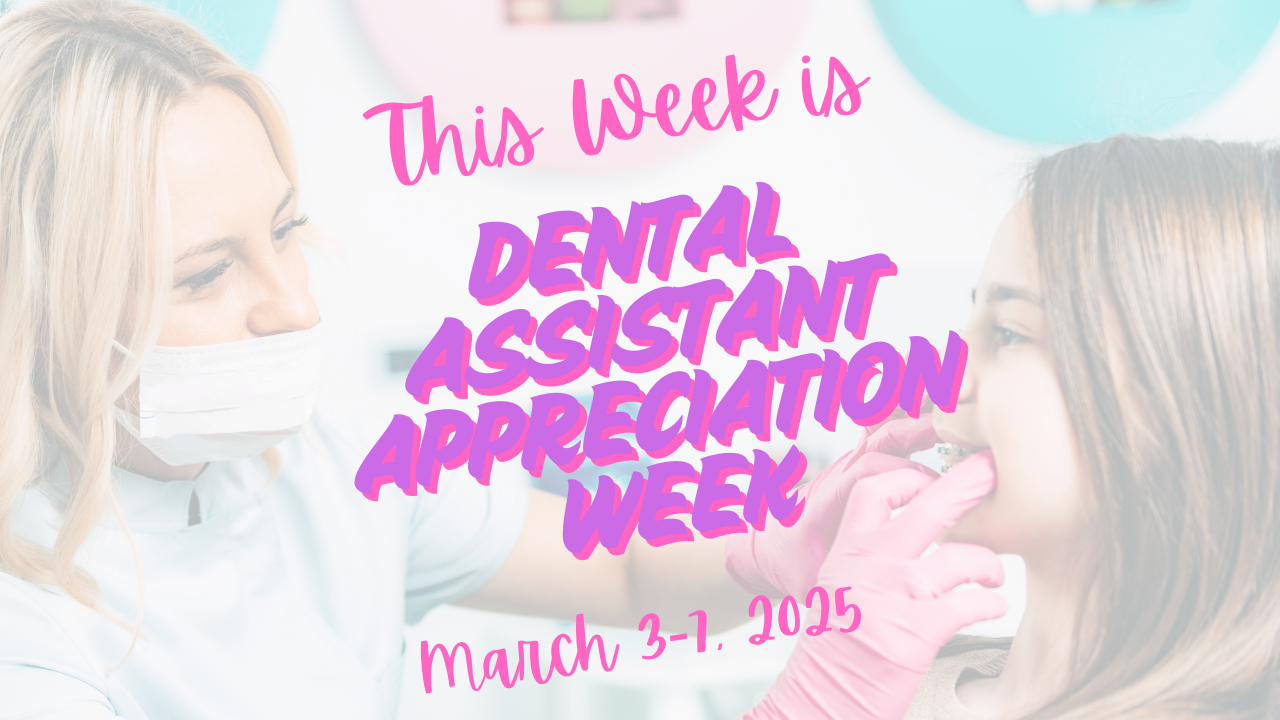How to Truly Support and Empower Your Orthodontic Assistants

Your orthodontic assistants are the backbone of your clinic. They keep things running, ensure patients feel comfortable, and juggle a hundred tasks at once—all while making it look effortless. But the reality is, it’s not effortless. It’s a skill, a craft, and a profession that requires training, support, and recognition.
Many assistants are expected to learn on the job with little formal orthodontic training. Without structured support, they are left to figure things out on their own.
When you invest in your assistants, you invest in your entire clinic. A well-trained, empowered, and valued chairside doesn’t just make your day easier; they elevate the patient experience, enhance efficiency, and contribute to a positive work environment.
And what better time to acknowledge that than Dental Assistant Appreciation Week? These dedicated team members deserve real support, training, and growth opportunities—not just words of appreciation but meaningful action.
Here’s how you can create an environment where your assistants feel valued, develop professionally, and stay engaged long-term.
1. Onboarding: More Than Just a Tour, Scrubs and "Here's your chair"
A strong onboarding program sets the foundation for success. Many assistants are thrown into their roles without structured training, leaving them feeling overwhelmed and unprepared.
What to Do:
- Develop a structured onboarding plan with clear expectations
- Provide written SOP guides, checklists, and video tutorials
- Assign a buddy or training lead for ongoing support
- Schedule regular check-ins in the first 90 days
Ask Yourself:
- Are we providing new assistants with the why behind their tasks, not just the how?
- Do they feel comfortable asking questions without fear?
2. Continuous Training: Learning Should Never Stop
Many assistants learn orthodontics as they go, but without ongoing development, they risk plateauing.
What to Do:
- Offer structured, hands-on training sessions
- Provide quick, digestible learning opportunities like lunch and learns and short videos
- Encourage continuing education courses and certifications
- Train beyond technical skills, focusing on communication and leadership
Ask Yourself:
- When was the last time we provided intentional training?
- Are our assistants confident in troubleshooting problems chairside? If not, teach, teach, teach!
3. Growth Opportunities: A Clear Path Forward
Assistants who see no opportunities for advancement may become disengaged or leave. ⬅️ Read that again.
What to Do:
- Identify career growth paths within the clinic
- Provide leadership opportunities, such as clinical lead roles
- Encourage cross-training in different areas like lab, inventory, and aligner systems.
- Offer incentives for continuing education and skill-building
Ask Yourself:
- Do our assistants see a future in this clinic?
- Are we fostering leadership potential within our team?
4. Real-Time, Constructive Feedback
Feedback should be ongoing, supportive, and actionable—not just given during yearly growth plans.
What to Do:
- Provide real-time feedback instead of waiting for formal reviews
- Keep feedback specific and constructive
- Create an environment where questions and discussions are encouraged
Ask Yourself:
- Are our assistants guessing what is expected of them, or are we clearly guiding them?
- Do we acknowledge what they’re doing right, not just what needs improvement?
5. Cross-Training: Strengthening the Entire Team
Cross-training ensures assistants understand the full scope of your practice operations and can step in when needed.
What to Do:
- Rotate roles occasionally to expose assistants to different responsibilities
- Allow assistants to shadow other team members
- Develop a training schedule that keeps everyone engaged
Ask Yourself:
- Do our assistants feel confident stepping in when needed?
- Are we providing opportunities for them to expand their skills?
6. Recognition: Making Appreciation a Daily Habit
Orthodontic assistants don’t hear “thank you” nearly enough. Genuine recognition boosts morale and reinforces their importance to the clinic.
What to Do:
- Give daily, meaningful verbal appreciation
- Implement monthly shout-outs in team meetings
- Celebrate work anniversaries and achievements
- Provide small rewards like team lunches or recognition gifts
Ask Yourself:
- Do our assistants feel seen and valued?
- Are we making appreciation a consistent practice?
7. Embracing Mistakes as Learning Opportunities
Mistakes happen. A supportive environment allows assistants to learn from them instead of fearing consequences.
What to Do:
- Encourage open communication and problem-solving
- Foster a culture where mistakes lead to learning, not frustration
- Provide guidance and mentorship when challenges arise
Ask Yourself:
- Do our assistants feel comfortable asking for help?
- Are we creating a safe space where growth is encouraged?
The Bottom Line: Investing in Your Assistants Strengthens Your Clinic
When orthodontic assistants feel valued, supported, and invested in, they are more engaged, confident, and committed. This leads to:
- Better patient care
- A more positive team culture
- Reduced turnover and burnout
- A clinic that runs efficiently
As we celebrate Dental Assistant Appreciation Week, let’s go beyond simple thank-yous and commit to meaningful action.
- They deserve the training.
- They deserve the growth opportunities.
- They deserve the recognition.
- They deserve all the things.
💡 How are you celebrating your assistants this week? More importantly, how will you continue supporting them after the week is over?

